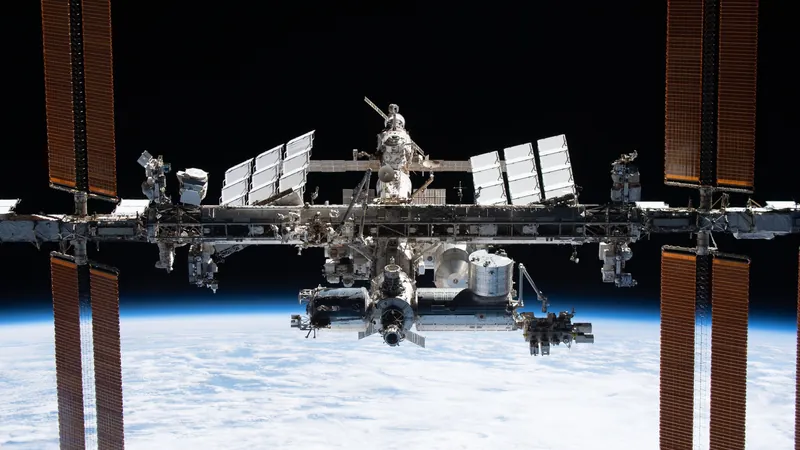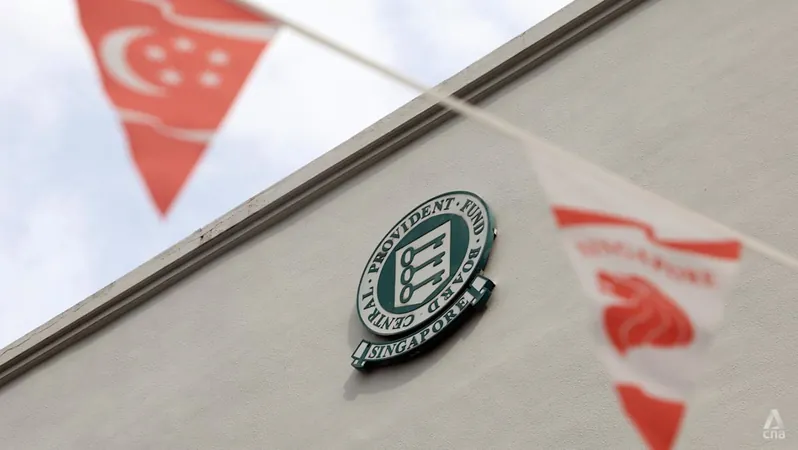
Is the International Space Station Facing an Untimely End? What’s Next for Human Spaceflight!
2025-09-17
Author: Rajesh
A Fiery Legacy: The Fate of Skylab
Throwback to 1979: NASA's very first space station, Skylab, made an audacious and chaotic descent through Earth’s atmosphere. Initially, the plan was for it to plunge into the Indian Ocean. But as fate would have it, debris scattered as far as western Australia, leading to a flurry of metal raining down on unsuspecting towns. In a rather humorous turn, town officials handed NASA a $400 citation for littering — a debt that remained unpaid until a radio personality raised funds in 2009. This event has become a playful symbol of how we allowed a space station to crash without a backup plan.
Back to the Present: The ISS Is on Borrowed Time
Fast forward to today, and we find ourselves facing the same impending dilemma with the International Space Station (ISS). Operational since 1998, the ISS has been a bustling hub for over 4,000 experiments, ranging from the effects of long-term spaceflight on our bodies to developing extraordinary materials that can only be crafted in microgravity. Its legacy is profound, shaping our understanding of deep-space missions and the protocols necessary for human survival beyond Earth.
NASA’s Plan: Letting Go of Low Earth Orbit
But here’s the catch: NASA has a plan to dismantle the ISS and send it crashing back into Earth's atmosphere come 2030 — and there’s no direct replacement lined up. Instead, NASA is shifting its focus to the Lunar Gateway, designed as a staging area for lunar missions and potentially risky political future due to the overall uncertainty of the Artemis program.
A Commercial Leap into the Future
Rather than building another ISS, NASA is fostering the Commercial LEO Destinations program, aiming to ignite private investment in space stations. The initiative includes partners like Orbital Reef, a collaboration between Blue Origin and Sierra Space, and Starlab, by Voyager Technologies and Airbus. The standout, however, is Axiom Space, nearly set to launch its first module, which will hook up with the ISS in 2027, paving the way for a fully-fledged Axiom Station.
A New Era of Space Innovation
Axiom has already sent private astronauts to the ISS for training, gearing up for what could be an exciting new chapter in human spaceflight. These private ventures may not only ensure our presence in low Earth orbit continues, but also open up commercial opportunities like zero-gravity hotels and mini-factories for unique materials.
Success in Sight?
With past successes like the Commercial Crew Program that brought us the Falcon 9 and Dragon spacecraft, there’s hope that this innovative push could prevent a repeat of Skylab's fate. As private companies vie for a stake in low Earth orbit, the future of space exploration looks promising and packed with potential.


 Brasil (PT)
Brasil (PT)
 Canada (EN)
Canada (EN)
 Chile (ES)
Chile (ES)
 Česko (CS)
Česko (CS)
 대한민국 (KO)
대한민국 (KO)
 España (ES)
España (ES)
 France (FR)
France (FR)
 Hong Kong (EN)
Hong Kong (EN)
 Italia (IT)
Italia (IT)
 日本 (JA)
日本 (JA)
 Magyarország (HU)
Magyarország (HU)
 Norge (NO)
Norge (NO)
 Polska (PL)
Polska (PL)
 Schweiz (DE)
Schweiz (DE)
 Singapore (EN)
Singapore (EN)
 Sverige (SV)
Sverige (SV)
 Suomi (FI)
Suomi (FI)
 Türkiye (TR)
Türkiye (TR)
 الإمارات العربية المتحدة (AR)
الإمارات العربية المتحدة (AR)